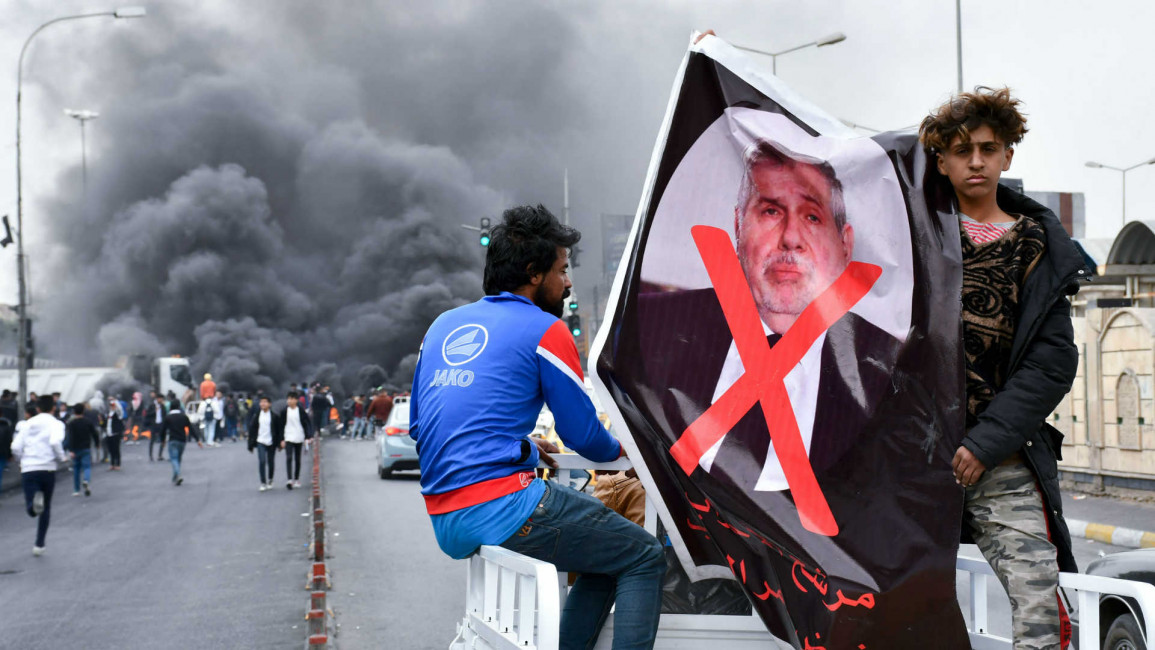Iraq PM-designate calls for confidence vote Monday
Allawi sought to emphasise that his cabinet was not drawn from the political elite, a key demand of the protest movement that has swept the country's capital and south since October 1.
In a speech broadcast on state TV, Allawi said he was proposing "an independent government without any party candidates for the first time in decades".
Iraqi officials have quietly expressed scepticism that such a government would earn parliament's approval, and protesters are suspicious of Allawi's claims of political independence.
Allawi said he was calling on parliament, which is currently on a break, to sit for a confidence vote on February 24.
He was charged with forming a new government on February 1, after President Barham Saleh gave political parties an ultimatum, saying he would name a new premier unilaterally if they did not agree on a candidate.
Addressing the Iraqi people, Allawi warned Wednesday that if no government is formed by the March 2 constitutional deadline, "it will be because there are indeed parties that are working for instability" in order to maintain "confessionalism and corruption".
|
|
Outgoing premier Adel Abdel Mahdi had also applied pressure earlier Wednesday, saying it would not be fair for him to hold his post beyond the constitutional deadline for confirming his replacement and warning against a "very dangerous" vacuum.
Abdel Mahdi stepped down in December in the face of the unprecedented anti-government protests demanding an end to corruption, an independent prime minister and a total political overhaul.
But protesters have rejected the choice of Allawi as his successor, saying the two-time former communications minister is too close to the elite they have railed against for months.
Traditionally, ahead of a confidence vote, lawmakers are provided with each ministerial candidate's CV and the proposed names are sent to a commission in charge of ensuring none had roles in the Baath party regime of late dictator Saddam Hussein.
Political sources say neither step has happened yet.
Even if parliament sits Monday, a confidence vote is not guaranteed.
The current parliament is Iraq's most divided in recent history and it is not uncommon for sessions to be adjourned due to a lack of quorum.
Allawi's government would be expected to rule only until early parliamentary elections are held under a new electoral law - a major demand of demonstrators.
Around 600 protesters have been killed since the mass demonstrations swept the country in October last year.
Iraqi security forces and Iran-linked miltias have been accused of extreme brutality against protesters, with many deaths reportedly caused by sniper fire and military-grade tear gas grenades.
Activists have also suffered abductions and targeted assassinations.
The United Nations Assistance Mission for Iraq on Monday said it had obtained credible evidence that protesters had been targeted with hunting rifles, stones and firebombs over the weekend, causing at least 50 injuries.
"The continued pattern of the use of excessive force, with ambiguously identified armed groups and unclear loyalties, is a grave security concern that must be tackled urgently and decisively. Peaceful protesters should be protected at all times," said Jeanine Hennis-Plasschaert, Special Representative of the United Nations Secretary-General for Iraq.
Follow us on Facebook, Twitter and Instagram to stay connected



